“Business is a very beautiful mechanism to solve problems, but we never use it for that purpose. We only use it to make money. It satisfies our selfish interest but not our collective interest.” - Muhammad Yunus
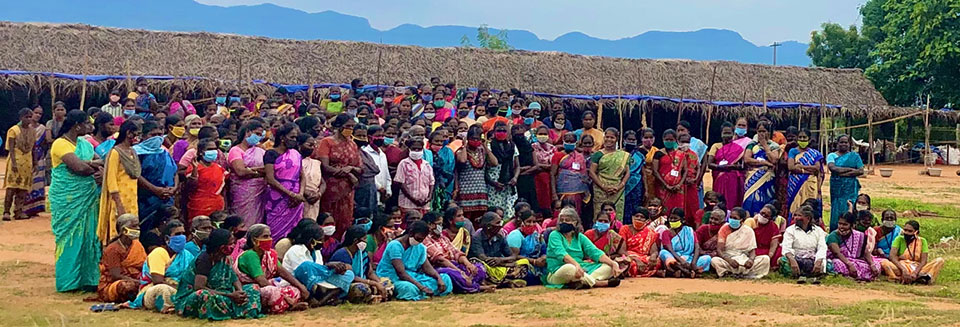
A women owned enterprise in Tamil Nadu that produces goods for global markets using local natural resources and their creative contribution. Image: Jacob Mathew
Vision
The world after seeing several decades of progress to uplift millions of people from abject poverty, is seeing an increase of inequality exacerbated by climate change induced events that even questions the continued existence of humanity. The conditions of work and equality in agency at work, still has a way to go whether proscribed by gender, social status or access to capital.
Slavery was abolished two centuries ago only to be replaced by what linguist Noam Chomsky and others describe as wage slavery.
“Experience demonstrates that there may be a slavery of wages only a little less galling and crushing in its effects than chattel slavery, and that this slavery of wages must go down with the other”. Frederick Douglas 1888.
The industrial revolution in many ways switched chattel slavery to wage slavery where producers and employees are excluded from decision making and are not permitted to apply themselves creatively to realize their limitless innate potential.
William Von Humbolt the founder of the modern university observed that …..“……if an artisan produces a beautiful object on command we may admire what he did but we despise what he is — he’s a tool in the hands of others. If on the other hand he creates that same beautiful object out of his own will we admire it and him and he’s fulfilling himself”.
Business and the way it is structured, especially post the industrial revolution has contributed to inequality and environmental degradation at a scale that has never been witnessed before.
Business and its support services like design have been complicit in this downward spiral. A new critical approach to design is “defuturing” where business and design first understand the problem and only then can be part of the solution.
We are a movement of sustainability-focused entrepreneurs, passionate change-makers and business opportunity seekers who want to frame the world in entirely new ways. We believe business that are based on principles of design are going to shape the future.
A unique blend of Design, Business and Impact; creative impact making is a core guiding principle of this course. Positioned within one of the best art and design school environments that is also located within Bangalore, a global centre of entrepreneurial activity.
Learners capitalize on the creative energy and business acumen of the Srishti community to design innovative and systemic solutions to the opportunities they see nested in the problems they see around them which could be environmental, cultural or political.
The core values of the program explores the confluence of design, business, capital, sustainability and community to harness humanity’s innate entrepreneurialism to create businesses that focused on maximising social impact profitably instead of looking at maximising profit at any cost.
The Master of Arts in Entrepreneurship format of Boot Camps and workshops with mentoring, allows aspiring impact entrepreneurs, start-up impact entrepreneurs, to pursue a Master of Arts qualification while building up their enterprise or start-up. A learn-experience-apply-practice method while building their business model and testing it in the field brings an immediacy to the learning based on principles of defuturing.
We believe-
- Impact needs business acumen to sustain and grow.
- Business should be a positive enabler for planet and people.
- Healthier business can create net positive impact on planet, people, profit and entrepreneurs themselves.
- Design thinking is human, empathetic and solution oriented.
- It’s not just looking at cases in the past, it teaches ‘being’ in the now and coming up with solutions, not just to problems but also to fulfil aspirations.
- We learn by doing. We practice taking businesses from ideation to execution in looking for solutions for Environmental, social, economic and cultural sustainability through business design
- The world needs more authentic and courageous leadership
- Freedom- to accept and fully express oneself is powerful
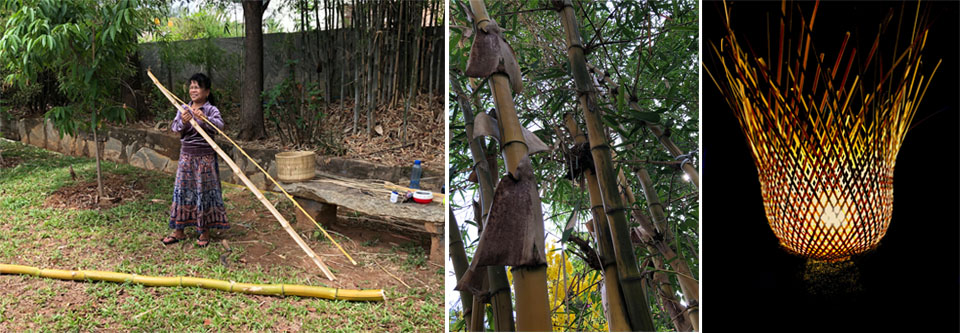
Integrated Value chain based enterprise from plantation to product. Image: Jacob Mathew
Learning Approach
The Masters in Entrepreneurship for Impact is a full-time program that takes two years (four semesters) to complete. We follow a practice-based approach to learning where entrepreneurs work on their enterprise idea throughout the two years. Action Based Research is key to the program with immersion in the context and identifying key constraints and key resources to build feasible viable and desirable business solutions. Through the first year we take the entrepreneurs through the design thinking and service design process to refine their product or service idea. They are equipped with business strategy and branding tools to then take this idea to life over the second year. Our aim is for them to scale their impact such that they could have a sustained business model by the completion of their course.
Our students have built enterprises, scaled solutions created new models for impact making while being part of the course. Learning follows a learn-experience-apply-practice format where theoretical knowledge and understanding is understood in terms of best practices through simulation and then applied in a real life context and then practiced repeatedly for internalisation and mastery.
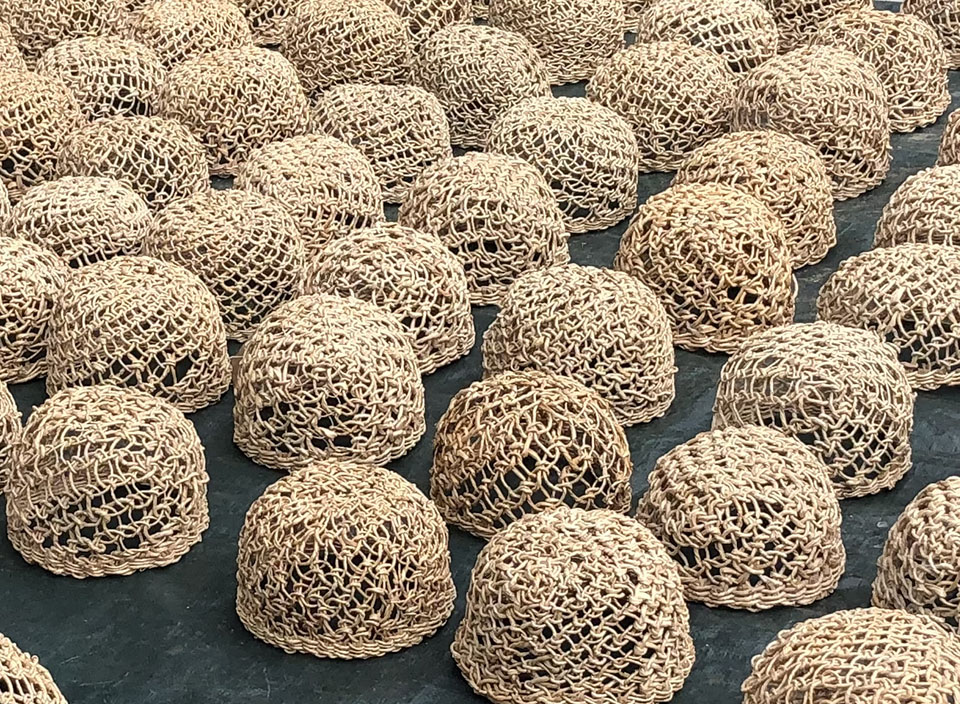
Preparing aspiring social entrepreneurs to build businesses that work consciously with purpose to create impact in real life situations. Framework: Jacob Mathew
Program learning components include:
Concentrated sessions using a bootcamp format for conveying theoretical knowledge tempered with practitioner experience with extensive field work for observation , need finding followed by building hypothesis and testing through application.
Knowledge, theory and understanding from a design and practitioner lens.
Developing a stance of better world making through exploring personal, professional and entrepreneurial purpose and aligning them.
Understanding systems and systems thinking along with business, design, community participation frameworks tools and methods and applying them in real world situations through and iterative and learning process.
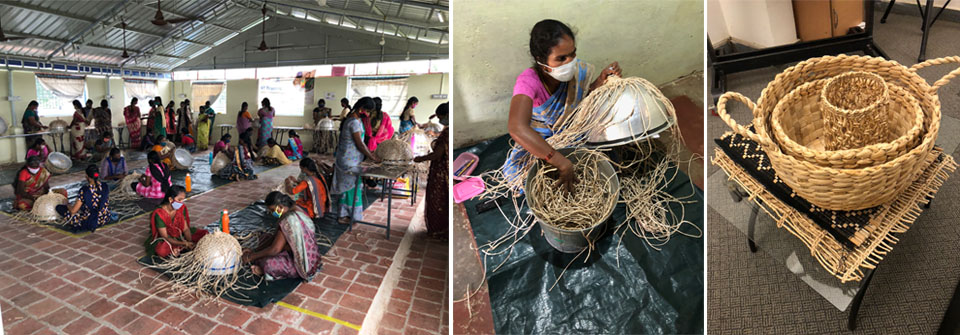
Learning to work in context from individual to group to interfacing with market. Image: Jacob Mathew
Capability Sets
On successful completion of the course, graduates will have the following capability groups.
Knowledge and Understanding: Practitioners learn principles and apply them to build for effectiveness and not just efficiency, frame processes and continuously improve them for better outcomes as a journey and not as an end. Understand the need for, and ability to conform to legal, regulatory, social and environmental compliances. Using IT/ITES for reach and scale. Explore ethics and apply principles of leadership in action.
Communication Skills: The ability to use stories and connect with emotion backed by data and facts. Learning to pitch effectively. Learn how to attract, inspire induct and retain good people in their enterprises. Brand and communication basics to enhance and further reinforce brand and behaviour for market. Networking and collaborating to punch above one’s weight. Understanding systems and complex interactions and being able to frame them and then express them simply.
Practitioner Skills: Use design thinking methods strategy, business frameworks and models to project needs and solutions that fulfil aspirations for end users and customers of their products and services. Ability to make financial and business projections and then plan finances accordingly. Understanding the basics of funding and how to raise capital. Understand the basics of accounting and business principles for bench marking, measurement and as a dash boards for performance that goes beyond the monetary including natural, human and impact capital. Understanding the link between values, behaviour and culture and actively shaping one’s organisation’s culture. Manage projects with agility and manage day to operations and logistics effectively.
Through attending the MA-EI program, you can acquire the following capabilities:
- Discovering and realising one’s purpose through enterprise.
- Business modelling that balances purpose, people and profits.
- Connecting with markets and communities through compelling stories.
- Reaching markets, Self-sustaining business models to create impact.
- Bringing markets to communities through branding and strategy tools.
- Making products and services keeping the customer and community at the centre
- Value driven product- service- delivery systems.
Awards: The program awards an MA in Entrepreneurship in Impact (MAEI).
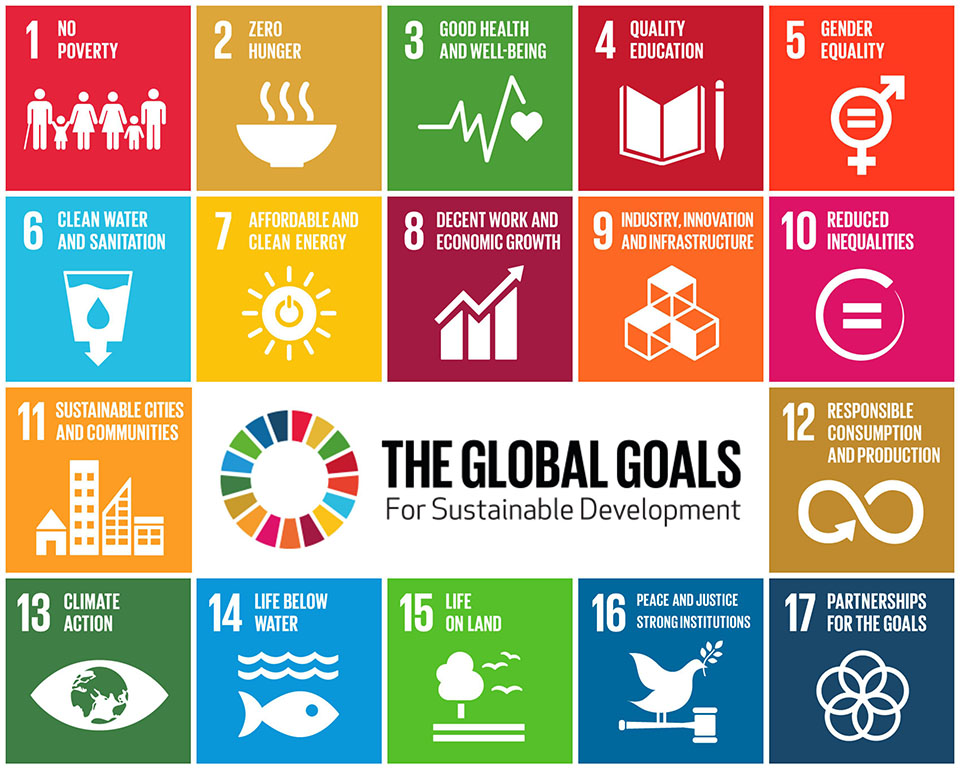
The program is closely linked to the achievement of the UN SDGs
Opportunities
Social Sector
Social Entrepreneurs
Next line NGO leadership
NGO program managers
Producer Company leadership and management
Private Sector
Corporate Intra-preuneurs
Mid-Career Shift Professionals
CSR professionals
Public Sector
Professionals in Public organisations (example NRLM and SRLMs)
Multilateral project Managers (eg World Bank, UNDP, project managers)
People
Enquiries

Industry News
Read more >>
Disciplinary Intersections
The program is informed by related learning disciplines like
Design Thinking
Strategic Communication
Sustainability
Systems and Service Design
Research and Collaboration
The MINT program offers its students opportunities to connect with artists and designers from a range of research and practice labs and centres based at Srishti Manipal.
These include:
IMPACT EDGE
Srishti Labs (Slabs)
Srishti Films
FAQs
This program is about creating social impact profitably and not about maximizing profit which mainstream entrepreneurship is largely about. The original purpose of business was always about serving society and not about just maximizing shareholder returns.
Creative impact making is about newer ways of looking at development sector- this keeps the end-user at the centre and is sustained every step of the way. It’s a marriage between business tools and design thinking with the purpose of maximising impact.
World over there is an increasing acceptance of the need for business solutions to social problems, and there is an emerging class of start-ups and enterprises that address urgent societal problems across domains like
- Livelihoods
- Education
- Energy
- Water and sanitation
- Health
- Housing
- Financial inclusion
- Social equity
Moreover, we need more designers to think like businesspeople and vice-versa. This course is about building that capacity to design purposeful business enterprises.
It’s not essential that you are already running an enterprise, but you want to. This program is a guided process of enterprise design and sustainability. It allows an entrepreneur-aspirant to understand and apply learning in real-life contexts and develop a business idea over the first year. Through creative experiments they design/hone their enterprise idea.
The second year is about taking the ideas to marketplace, generating revenue, building channels for sales and scale, etc. If you are already running an enterprise this program will help you refine it and accelerate its development.
situation while doing this program. You will be working on your start up idea or running an enterprise that you have already started. You could also be an aspiring entrepreneur yet to start a business.
We help aspiring entrepreneurs be attached to one of our partner organisations to work in a real-life situation.
The MA EI is for fulltime aspirants. The program requires self-initiative and discipline to work independently. It has contact time interspersed with action-based research and guided mentorship. This work is carried out in the field. MA PP-EI is meant for working professionals and there is more information on it on the website under the MA in Professional Practice Programs.
Our courses are listed in the prospectus. We focus on issues like circular economy, business modelling, generating revenues and scaling ventures, sustainability and social inclusivity. We situate all our courses in contexts that affect the world today and also work on future scenarios.
Many corporates are interested in creating a layer of intrapreneurs who could lead and develop new products and services for underserved markets, this program will help build and validate credible and concrete business models for BOP (Bottom of Pyramid) markets.
Graduates of this program run independent businesses/ projects within larger organizations.
Students will receive feedback and be assessed on assignments they complete from time to time. Their portfolio of work, participation and contribution to seminars/webinars will also be assessed. At end of the program students will submit a capstone project based on practice, research and field work, pass a viva voce and participate in a graduate conference.
Since the MA-EI is situated in an art and design school the course is influenced by design thinking processes. It focuses on an all-round understanding of the larger ecosystem in which the business is situated in order to creatively develop new business models considering a wide range of elements like people, skills, natural resources etc with an emphasis on sustainability. While financial sustainability is important, we also consider Environmental, Cultural and Social sustainability. The MA-EI program is more like a start-up incubator and is cross disciplinary. The program has a tangible output in the form of a business, policy or investment framework. Being practice based- students learn from applying knowledge into real-life situations, making it a more real learning experience.
All admission and fee related information could be viewed on our admissions page.


